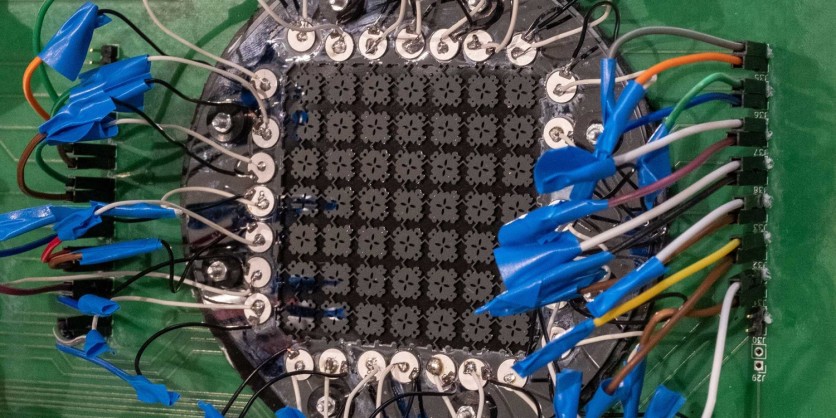Researchers at ETH Zurich have unveiled a groundbreaking battery-free sensor that harnesses sound waves, such as specific spoken words, to generate vibrational energy capable of powering electronic devices.
Taking Out the Batteries From the Sensors
The research team noted that conventional sensors in infrastructure monitoring or medical devices often rely on continuous battery power, contributing significantly to environmental waste.

An EU study predicts that by 2025, a staggering 78 million batteries will be discarded daily, emphasizing the need for sustainable alternatives.
Led by Marc Serra-Garcia and ETH geophysics professor Johan Robertsson, the team developed a mechanical sensor that operates without an external energy source.
Unlike traditional sensors, this device taps into the vibrational energy present in sound waves, eliminating the need for batteries. The sensor functions purely mechanically and responds to specific spoken words, tones, or noises that emit sound waves, causing the sensor to vibrate.
This vibrational energy is then transformed into a small electrical pulse, activating an electronic device that was turned off. The patented prototype was developed at the Switzerland Innovation Park Zurich in Dübendorf, and it can distinguish between spoken words, such as "three" and "four."
The sensor reacts to the greater sound energy associated with the word "four," causing vibrations, while no response occurs with the word "three." The researchers aim to enhance the sensor's ability to recognize up to 12 words, expanding its potential applications.
Read Also : Samsung OLED 2.0 Fingerprint Sensors Will Change Everything with a Close-to-Zero Failure Rate
Metamaterial Composition
A remarkable aspect of this sensor is its metamaterial composition. Instead of relying on specific materials, the sensor's unique properties stem from its structural design.
"Our sensor consists purely of silicone and contains neither toxic heavy metals nor any rare earths, as conventional electronic sensors do," Serra-Garcia said in a statement.
The sensor consists of interconnected plates with spring-like connecting bars, determining its response to sound sources. Computer modeling and algorithms were instrumental in designing these microstructured plates and understanding their attachment mechanisms.
According to the team, the applications for these battery-free sensors are vast, ranging from earthquake and building monitoring to detecting leaks in decommissioned oil wells.
The latter scenario involves the sensor identifying hissing sounds associated with gas leaks and triggering alarms without a continuous need for electricity, offering cost-efficiency and lower maintenance requirements.
According to Serra-Garcia, medical devices, particularly cochlear implants, stand to benefit from this innovation. Cochlear implants are essential for deaf people, and they currently rely on batteries for signal processing. Hence, the novel sensor could provide a sustainable solution by harnessing sound energy for continuous power.
The team aims to present a solid prototype by 2027, and if sufficient interest is not garnered, they are considering the possibility of founding a startup to develop it further and commercialize the technology. The research team's findings were published in the journal Advanced Functional Materials.
Related Article : New 200MP Camera Sensors Announced by Samsung: Smaller Pixels with Increased Autofocus

ⓒ 2026 TECHTIMES.com All rights reserved. Do not reproduce without permission.




